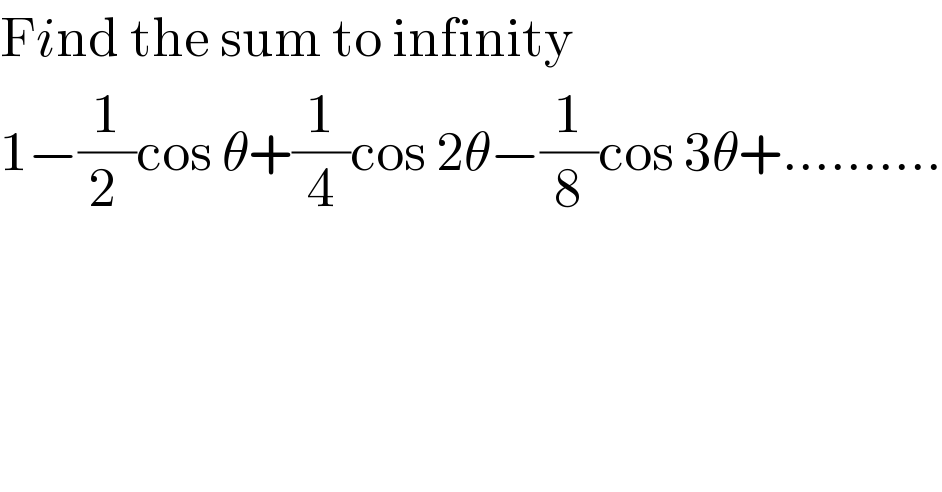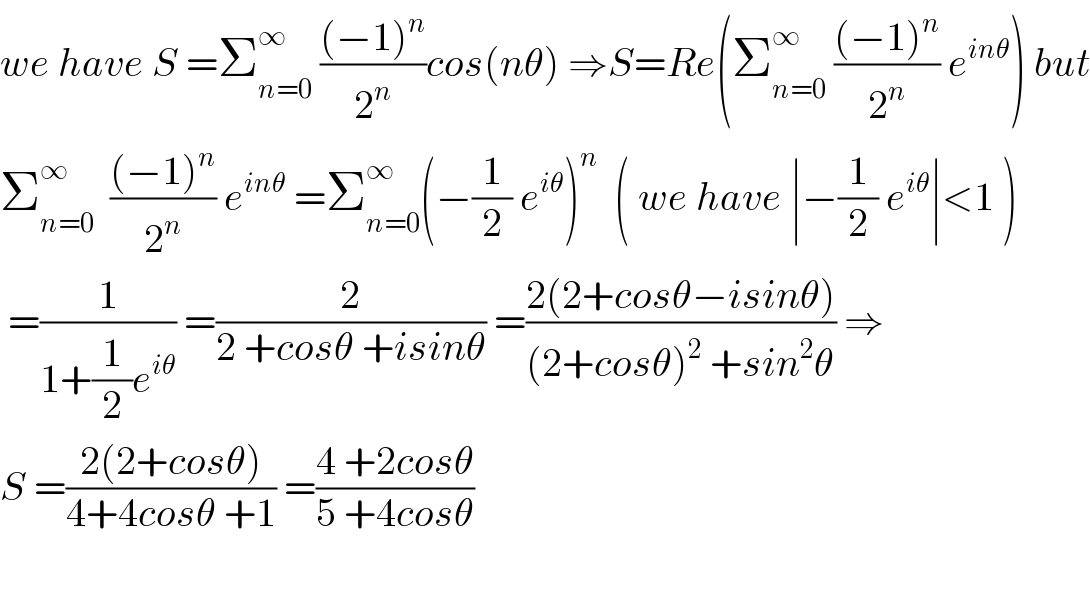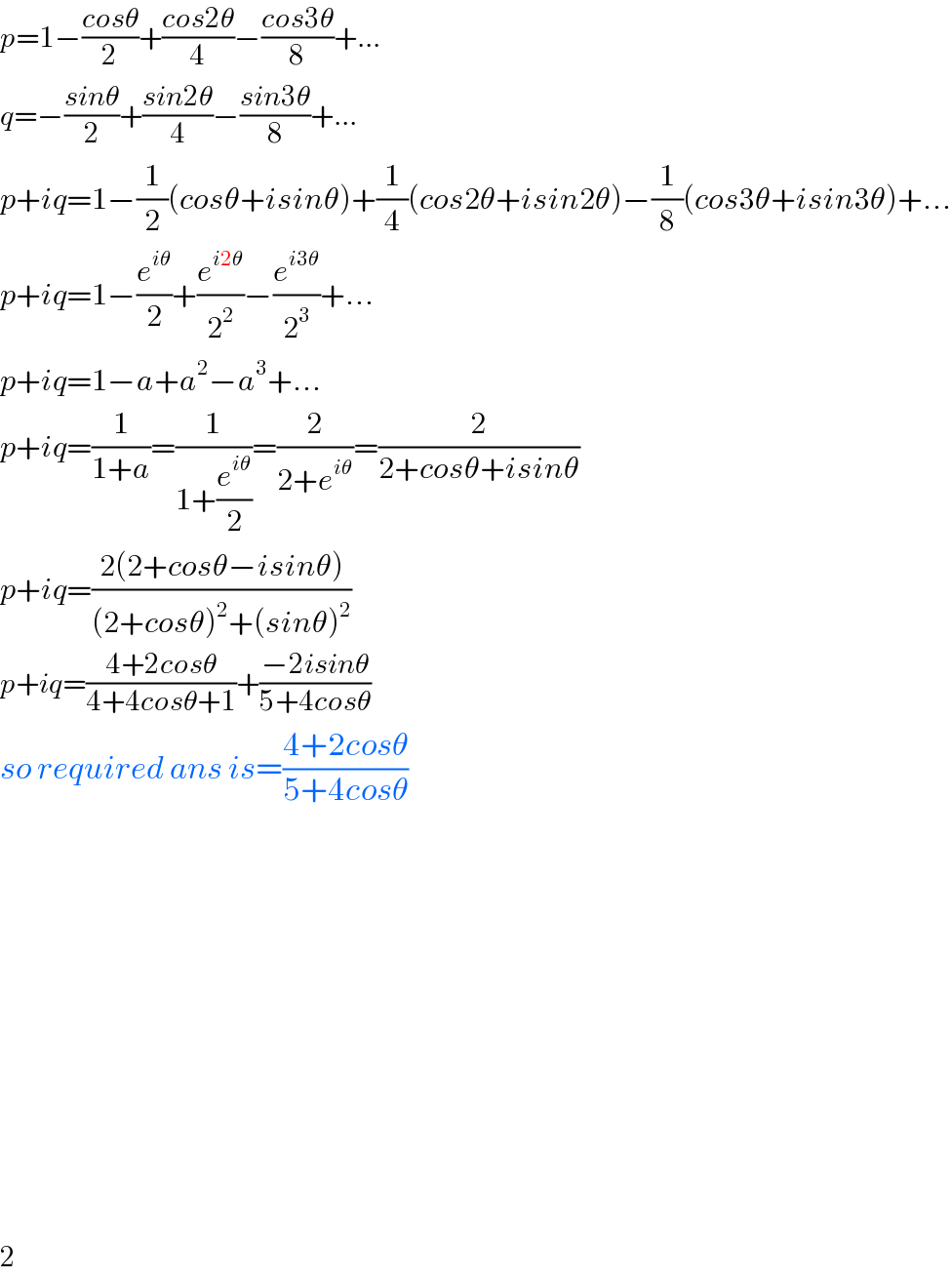
Question and Answers Forum
Question Number 54700 by peter frank last updated on 09/Feb/19

Commented by maxmathsup by imad last updated on 09/Feb/19

Answered by tanmay.chaudhury50@gmail.com last updated on 09/Feb/19

Commented by peter frank last updated on 09/Feb/19

Commented by peter frank last updated on 09/Feb/19

Commented by peter frank last updated on 09/Feb/19

Commented by tanmay.chaudhury50@gmail.com last updated on 09/Feb/19

